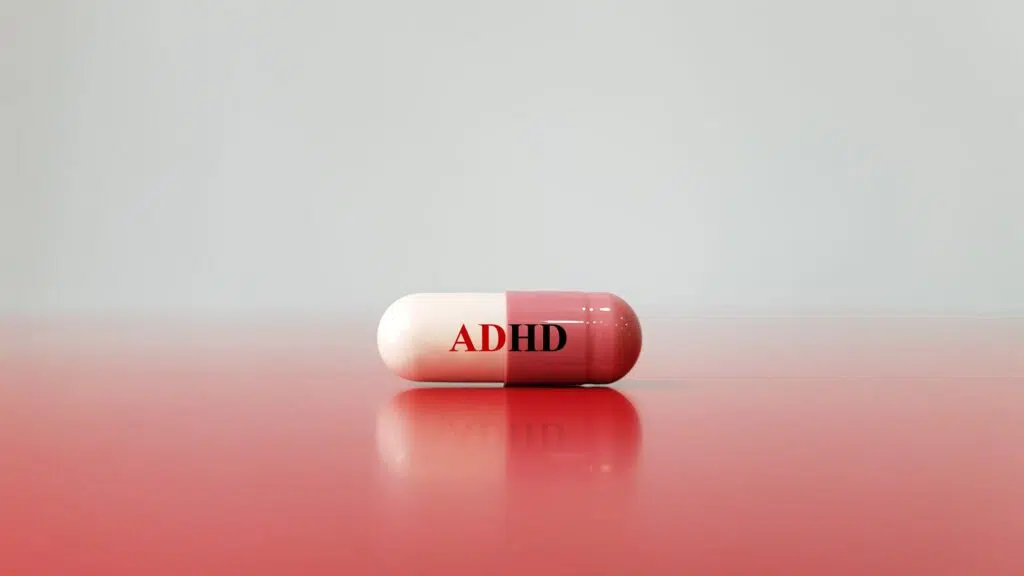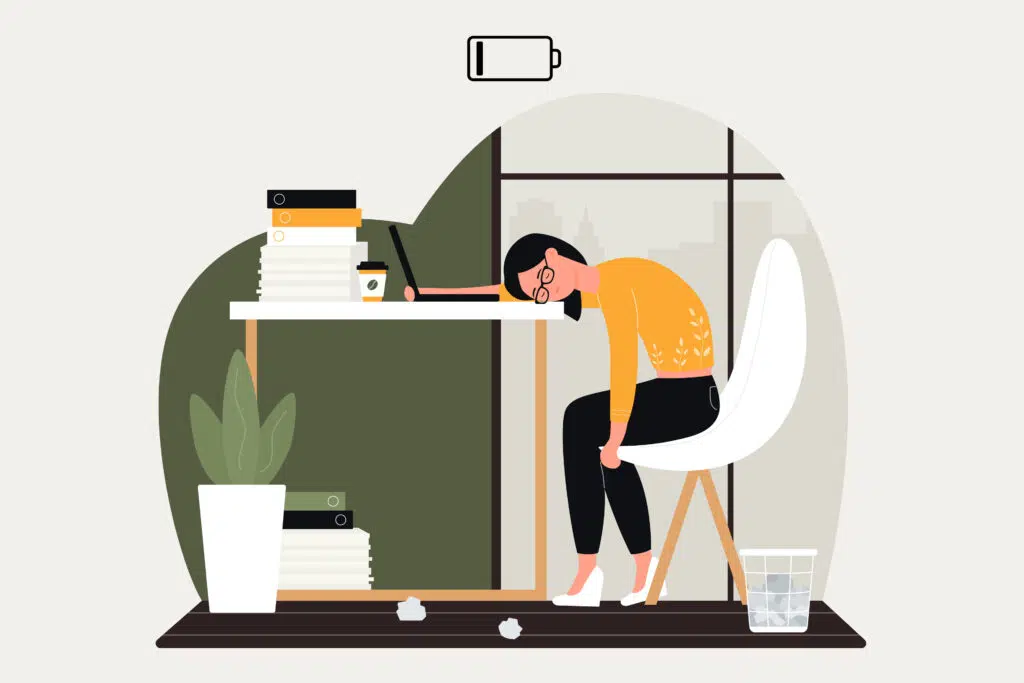How Does ADHD Medication Work?

It’s normal to have questions about ADHD medications. But, it’s important to understand what ADHD medications can and can’t do. ADHD medications might help improve concentration, control impulses and help someone with ADHD perform tasks more efficiently, but they don’t cure ADHD. Once the medication stops, the symptoms can return.
What is ADHD?
At its core, ADHD medication helps treat attention deficit and hyperactivity disorder (ADHD) symptoms. Common symptoms include impulsivity, inattentiveness, and hyperactivity. ADHD medications target brain chemicals responsible for attention and concentration by increasing the levels of neurotransmitters.
Let’s start with the basics. What exactly is ADHD?
ADHD is one of the most common neurodevelopment disorders in childhood. In most cases, symptoms occur during childhood and then continue into adulthood. Children with ADHD may experience the following:
- Have trouble with impulsive behavior
- Be overly active
- Have difficulties following instructions and completing tasks
- Struggle to pay attention
Studies suggest that symptoms will carry into childhood in 90% of cases. However, there are adults with ADHD who never got diagnosed in childhood.
Symptoms of ADHD usually look different in adults and children. Adults with ADHD may experience difficulties with the following:
- Recalling information
- Organizing
- Concentrating on tasks
Research into the causes and risk factors of ADHD is ongoing, but the exact cause isn’t fully understood. While scientific efforts continue, factors that may be involved in the development of ADHD include:
- Genetics
- Exposure to environmental toxins
- Premature birth
- Maternal drug use, smoking, and alcohol during pregnancy
The History of ADHD Medications
Doctors have been prescribing ADHD medications for decades. Methylphenidate is the stimulant often prescribed for children with ADHD. However, the medication was first developed in 1944 and marketed then as Ritalin. Back in the day, doctors used it to treat chronic depression and fatigue, but over time, they found it effective in improving ADHD symptoms.
So, how do ADHD medications work? The medications work in different ways depending on the medication type. However, they all have one thing in common – they work to increase levels of essential chemicals or neurotransmitters in the brain. The neurotransmitters include norepinephrine and dopamine. Increasing the levels of these chemicals helps improve the symptoms of ADHD by:
- Reducing hyperactivity
- Increasing attention span
- Managing executive dysfunction
- Controlling impulsive behavior
Getting an ADHD diagnosis isn’t always easy – whether for a child or an adult. It’s normal to wonder if ADHD medication could help you. ADHD medications work differently and have varying effects on each person. What may work for another person may not work for you.
At the same time, the first ADHD medication prescribed for you may not be the right one. It may cause side effects and, in some cases, not effectively manage the symptoms. Yet, in other cases, you may have the proper medication but need a higher dose to manage the symptoms effectively.
Are ADHD Medications Safe?
Now let’s talk about a common concern – are ADHD meds safe?
Generally, ADHD meds are considered safe, effective, and well-tolerated. However, proper medical supervision is necessary. Some children tend to develop more troublesome side effects than others. Doctors can manage most of these risks by alternating the dosage or switching to a different medication.
Like many medications that require long-term use, ADHD meds do come with risks and side effects, including:
- High blood pressure
- Heart disease
- Seizures
- Skin discolorations
- Irregular heartbeat
ADHD medication isn’t a “magic” pill that will fix ADHD for good. Even when the medication works, you may still struggle with some emotional problems, forgetfulness, disorganization, relationship difficulties, and distractibility. ADHD treatment typically includes a combination of treatments to manage symptoms effectively.
Are ADHD Meds Addictive?
ADHD medications are prescribed to manage the symptoms of hyperactivity and attention deficit in children and adults. However, since most meds are simulants, there is a concern among most patients – will ADHD medication change my personality? Are the medications additive? It’s natural to have worries.
There are concerns about the long-term effects of ADHD medications and substance abuse. While studies on ADHD medications point to beneficial effects on ADHD symptoms, these have to be carefully weighed against the possible adverse effects. One of the concerns is that long-term use of ADHD medications could lead to substance abuse. Some studies have proposed that substance abuse is higher in young people who use stimulant ADHD medication during sensitive developmental periods.
Generally, stimulants have higher abuse potential. Methylphenidate, one of the common stimulant ADHD medications, continues to raise concerns for subsequent substance abuse. This is because stimulant medications increase dopamine levels in the nucleus accumbens, a region in the brain associated with substance abuse. Although many studies seem to find no evidence that ADHD increases the risk of substance abuse later in life, there have been reports of misuse and abuse of stimulant ADHD medications.
If abused, the meds used to treat ADHD can lead to addiction. Adderall, Vyvanse (amphetamine), and Ritalin (a central nervous system stimulant) are the most commonly prescribed and the most effective ADHD medication for adults. The Child Mind Institute states that it’s vital to separate ADHD patients from those who don’t have the condition when discussing ADHD medication addiction.
There has been a lot of media attention on the abuse of the two medications – Adderall and Ritalin. However, much of that attention has been misplaced and misreported since some are people without ADHD.
Will ADHD Medications Help with Anxiety?
Anxiety disorders are mental health conditions that can negatively affect relationships, your work, and your quality of life. Anxiety comes with symptoms like stress, fatigue, insomnia, feeling on edge, and constant worrying. In your bid to manage your anxiety disorder, you may wonder – will ADHD meds help with anxiety?
The truth is that ADHD and anxiety are two very different conditions. However, the two can come as a package deal for some people. According to the Anxiety and Depression Association of America (ADAA), almost half of US adults diagnosed with ADHD have some form of anxiety. The proper medication can help improve the symptoms of ADHD and ease anxious feelings.
ADHD doesn’t necessarily cause anxiety but may increase the risk of developing an anxiety disorder. When that happens, the symptoms overlap, making it harder to identify and diagnose.
So, does ADHD medication help with anxiety? Certain ADHD medications could improve or worsen anxiety. Methylphenidate and amphetamines, the two most common ADHD stimulants, can help improve ADHD symptoms even if you have anxiety. Usually, anxiety is a side effect of stimulants, and your doctor won’t know how the medication will affect you until you take it.
It’s important to remember that when trying to manage your anxiety, ADHD medications are not a treatment for anxiety. Your doctor is the best person to prescribe the proper medication, especially if your ADHD and anxiety occur at the same time. Speaking to a mental health professional can help guide you in the right direction for proper treatment.
What are Other Treatments for ADHD?
There is a range of therapies that can help improve the symptoms of ADHD in children, teenagers, and adults. These therapies can also be effective in treating conditions like anxiety disorders that may occur with ADHD. They include:
- Psychotherapy
- Cognitive-behavioral therapy (CBT)
- Meditation and stress-management techniques
- Neurofeedback therapy
ADHD treatment typically involves a combination of treatments to improve symptoms so that you can cope with ADHD. By managing the condition, you can look to improve both your physical and mental well-being.
If you’re struggling with ADHD, speak to the team at Thriving Center of Psychology. Our mental health professionals specialize in practices to help you manage ADHD. To get started, schedule an appointment either in-person or by phone.

How to Overcome Procrastination and Anxiety
Procrastination is a very typical human experience. At some point or another, we’re all guilty of putting off that task we know is important. Maybe it’s household chores, filling your taxes, paying bills, or some other mind-numbingly boring task.

How to Build a Consistent Routine That Combats Depression
Depression can feel like a pit you can’t escape from, but know that depression is treatable with the right help. A basic daily ritual encourages healthy habits like a regular sleep schedule, healthy food choices, and exercise that support mental health.

How to Manage Stressful Life Transitions and Events
From getting into college or having a baby to splitting from a spouse or experiencing the death of a loved one, life can surprise you with big wins and tear you down with loss. Life is filled with transitions, some happy, others stressful and difficult.

How Long Does it Take to Recover from Burnout?
If you’ve reached burnout, it describes a state of complete emotional, physical, and mental exhaustion. Between heavy workloads, toxic work environments, economic uncertainty, and a poor work-life balance, burnout is a very real problem that can affect all aspects of your health.




